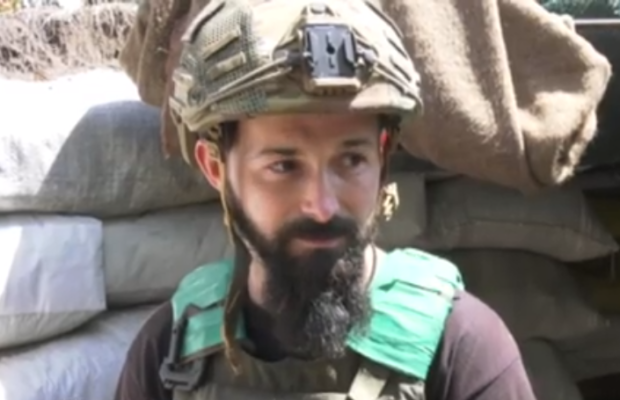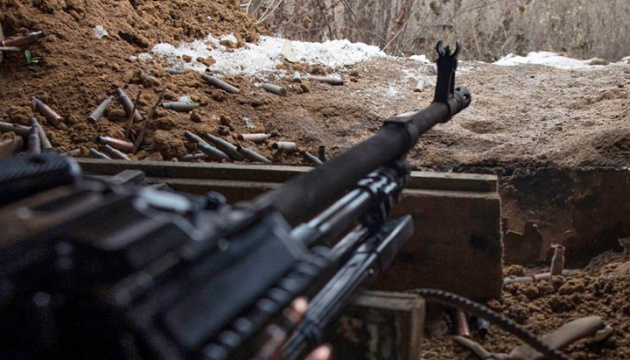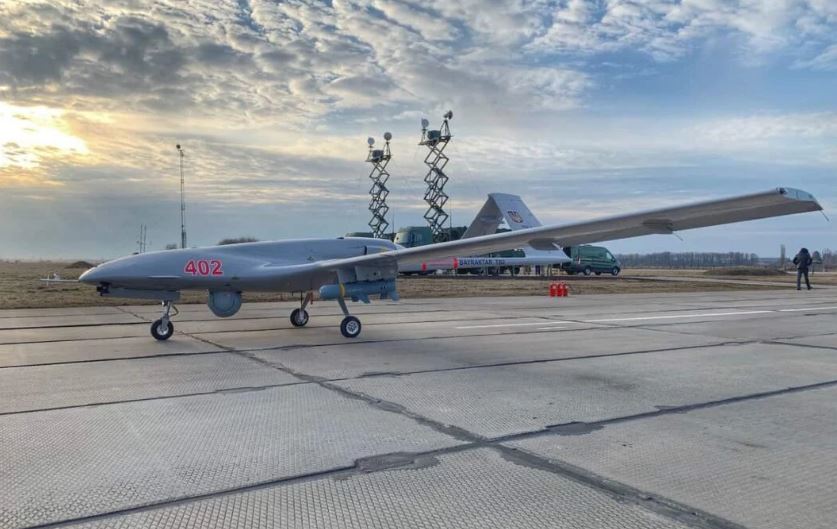The Ukrainian army, like all Ukrainian citizens, has received new orders and recommendations. However, the troops must remain on the front line and defend their positions.
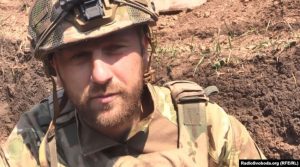
“Aver”, a Ukrainian soldier deployed near occupied Horlivka in Donetsk Oblast, says it is easy to see the multi-storey buildings of the occupied city very clearly from their positions. Little has changed in their daily routine since the quarantine was announced.
“I can’t speak for all the positions of the Ukrainian army along the front line, but I can tell you what’s happening here. The enemy shoot and shell periodically. Today, they were using ATGMs, grenade launchers and large-caliber machine guns. This happens regularly. They point their weapons at our positions, furiously emptying their machine guns and launching mortar shells.”
In early April, a woman from Verkhniotoretske was injured in heavy shelling by Russian-backed militants. Another civilian was killed. JFO (Joint Forces Operation) press center reports that as of April 14, no soldiers are infected with the coronavirus. However, many soldiers admit that restrictions are impacting combat capability in individual units.
“Many enlistment contracts are coming to an end. Do you understand what this means? Look, a few soldiers leave their unit, so the number of fighters is reduced. Well, this is normal. People come and go. But, with these new COVID rules and the quarantine, the soldiers leave… and no one replaces them. It hasn’t been properly coordinated yet. But, we see troops arriving regularly from our 'big neighbour'!” says serviceman Serhiy.
COVID threats on both sides of the contact line
According to the Commander-in-Chief of the Armed Forces of Ukraine Ruslan Khomchak
, entire brigades, i.e. thousands of soldiers and weapons have to be transferred regularly along the contact line. Today, the Armed Forces of Ukraine continue rotating the troops, but quarantine restrictions impose a two-week confinement. In fact, soldiers arriving at their place of deployment must remain quarantined on military training grounds for two weeks. Training sessions and classes are held in small groups.
“The soldiers in the war zone have minimal contact with the civilians. All vehicles are sanitized when they exit and enter the war zone. Soldiers, who must leave the military zone or travel beyond certain limits, must wear protective masks and gloves and carry sanitizers. We check each unit for the coronavirus after a two-week quarantine. If the test is negative, they can proceed with the rotation.” says Andriy Rymaruk, war veteran and member of the charitable NGO “Povernys Zhyvym” (Come Back Alive).
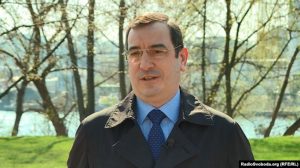
The Chief Directorate of Intelligence of the Ministry of Defence of Ukraine says that the COVID threat also affects the “LNR/DNR” militant groups, which are often assigned to patrol and sanitize the streets of occupied settlements. Military rotations across the Russian border have also changed.
“Everything that happens in the armed 'LNR/DNR' groups is a reflection of what’s happening in the Armed Forces of the Russian Federation. In addition, we can observe the rotation of Russian military units entering and leaving the occupied territories. They are also placed under observation and quarantine,” says Vadym Skibytskyi, spokesman for the Chief Directorate of Intelligence of the Ministry of Defence of Ukraine.
To date, the pandemic has not impacted combat capability. The Chief Directorate of Intelligence of the Ministry of Defence of Ukraine reports that 30 wagons of ammunition were transported from Russia to the Donbas in March and two from the beginning of April. Intensity of shelling remains about the same.
“According to the Chief Directorate of Intelligence of the Ministry of Defence of Ukraine , we know that five militants are currently being closely monitored. Why? Because they are said to be potential carriers of the virus. In addition, many militants are quarantined, as they were in close contact with each other.” adds Vadym Skibytskyi.
COVID-19 and hostilities in the Donbas

Can COVID-19 affect the war in the Donbas? Experts agree that there will be an escalation in hostilities, as is usual in the spring season.
“The enemy’s strategy will be very clear – using drones, they’ll find as many of our soldiers as possible and destroy them as quietly as possible. The trees are starting to bloom; their snipers will come out in full force. They’ll have more opportunities to hide. They’ll lie somewhere quietly, waiting for their victims. That’s it! The artillery and mortars won’t stop firing. The land has dried up, so vehicles and artillery units leave few tracks. They can now move about more freely,” says Andriy Rymaruk, war veteran and member of the charitable NGO “Povernys Zhyvym” (Come Back Alive).

Former Foreign Minister of Ukraine Pavlo Klimkin believes that the situation is now very uncertain. The COVID threat can escalate at any moment, not only in the Donbas, but also in southern Ukraine.
“Victory is very important for Putin. As there have been no victories in Russia itself, external victories have become even more essential for the Kremlin. I don’t rule out escalation in the coming months. What will it look like? Will it be local or more global? I think Putin will look at how the coronavirus pandemic is developing here in Ukraine, how the Kremlin can somehow exacerbate the information war, and then play it to their advantage. Moscow has many options and strategies, but I don’t think that Putin himself knows how he will act. He often acts emotionally, based on how the actual situation develops.” maintains Pavlo Klimkin.
However, de-escalation is always possible.
“De-escalation is actually possible sometime in late summer or in September, when Putin wants to hold a summit between the leaders of the permanent members of the UN Security Council to discuss international peace and security measures. And, of course, he’ll be looking at how the US presidential campaign is developing.” adds Pavlo Klimkin.
Klimkin is convinced that even though the whole world is focused on the virus, Ukraine must remember and insistently remind other countries about the Donbas, as this may now open another window of opportunity for future negotiations.
, 1 person recovered.
4 new cases were recorded in service personnel in Zhytomyr, Odesa, Vinnytsia, and Khmelnytskyi Oblasts.
307 service personnel are in isolation (including self-confinement).
No cases of COVID-19 recorded on the front line.



